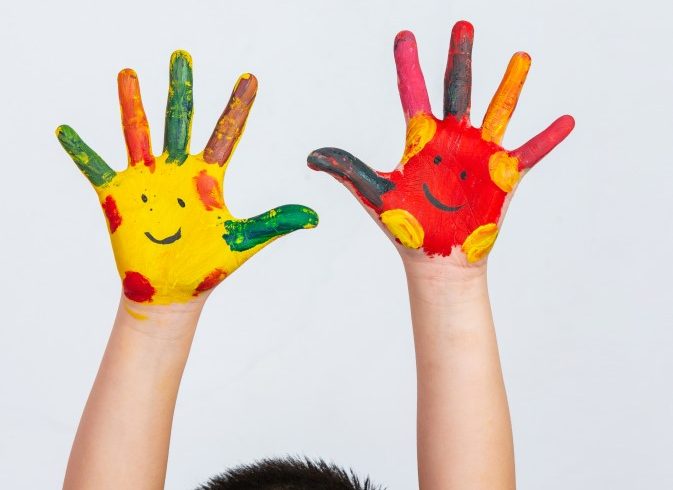World Autism Awareness Day
Since 2007, April 2 has been established by the United Nations (UN) as World Autism Awareness Day, a date set to highlight the importance of raising awareness and combating prejudice about Autistic Spectrum Disorder (ASD). The term “spectrum” means that there is a diversity of symptoms and levels of gradation of symptoms and aspects, resulting in each individual presenting a unique set of manifestations. Such gradations include, for example, difficulties in mastering language, a restrictive and repetitive pattern of behavior or difficulty socializing, among others, compromising social interaction due to a neurological condition.
TEA in numbers
According to a survey carried out by the Center of Diseases Control and Prevention (CDC), in 2022, one in 44 people will have some gradation within the autistic spectrum, that is, 1% to 2% of the world’s population. Such a proportion, if applied to the Brazilian population, would result in more than 4 million Brazilians within the spectrum. However, although considered outdated, data from the World Health Organization estimate that two million Brazilians may be part of the diagnosis to some extent.
What is TEA?
According to the Ministry of Health, autism spectrum disorder (ASD) is a neurodevelopmental disorder characterized by atypical development, behavioral manifestations, deficits in communication and social interaction, repetitive and stereotyped behavior patterns, and may present a restricted repertoire of interests and activities. Such signs in the child’s neurodevelopment can be perceived in the first months of life and the earlier the diagnosis and referral for behavioral interventions and educational support, the better long-term results, since early childhood is considered the best phase for interventions in the child development of brain neuroplasticity.
According to the Ministry of Health, scientific evidence indicates that there is no single cause, but the interaction of genetic, social and environmental factors, which can increase or decrease the risk of ASD in genetically predisposed people.
Diagnosis
Autistic Spectrum Disorder – ASD is included in the International Statistical Classification of Diseases and Related Health Problems (ICD/10) and in the International Classification of Functioning, Disability and Health (ICF) of the World Health Organization (WHO), in addition to the Manual Diagnostic and Statistical of Mental Disorders (DSM – APA). The ICF analyses the health of individuals in their functionality, morphological structure and participation in the social environment. Also, according to the Department of Health Care of the Ministry of Health, “the diagnosis of autism spectrum disorder is a description and not an explanation” (SAS/MS). Therefore, each evaluation and each planning of therapeutic intervention is unique, considering the specificities of each case, the diagnosis being essentially clinical, elaborated in a multidimensional way from observation of the child, application of specific instruments and interviews with parents and relatives. The team involved in the diagnosis includes a psychiatrist or neurologist, educators and professionals in the field of rehabilitation to design a Singular Therapeutic Project, that is, “a set of proposals for articulated therapeutic conduct, individual or collective, which result from the discussion of an interdisciplinary team” (SAS/MS).
The SUS Psychosocial Care Network
The Unified Health System has a Psychosocial Care Network (RAPS) whose objective is to contribute to expanding access and qualifying care for people with Autism Spectrum Disorders (ASD) and their families. In addition, RAPS seeks to “make efforts to deconstruct conceptions present in the social imaginary that marginalize and stigmatize people with ASD”. The SUS considers that users and their families are subjects of rights, autonomous and capable of deciding questions about their own lives.
Caring for the integral subject
The promotion of health and human development requires an integral and expanded view, including, in addition to aspects of physical and mental health, the subject’s social conditions. When dealing with people in vulnerable situations, for example, it is necessary to reflect that their rights do not always translate into guarantees and that, therefore, thinking about possible interventions with people diagnosed within the Autism Spectrum Disorder requires or should also require an intra and intersectoral policies such as health, social assistance, housing, public security, for example.
Prejudice
In recent years, especially during the COVID-19 pandemic, a good deal of false news about vaccination have been spread among the Brazilian population. It is necessary to clarify that vaccines are not risk factors for the development of ASD. Another prejudice concerns learning, since stigmatizing subjects does not contribute to their development.
TEA in the care provided by Instituto Dara
Instituto Dara has been operating for more than 30 years in promoting health, human development and combating poverty, applying the pioneering technology of the Family Action Plan – PAF, which performs a systemic action with the families assisted in the axes of health, education, housing, citizenship and income. Assistance to families has always had the child’s health as a gateway and, especially, the child’s physical and mental health. More recently, since 2022, with the support of the Care about Children Foundation, and based on the demands brought about by the mental health scenario in the perspective of the Covid-19 Pandemic, the Dara team has been working on a Psychopedagogical Recreation project for Children, with individual and group activities, structured in 3 stages:
- Identification of children in recreational activities carried out, based on their observation;
- Situational diagnosis of children who needed a closer look from the Psychology team;
- Initiation of treatment and/or psychological referral, with or without referral to the network of partners for continued treatment.
The Psychopedagogical Recreation for Children project focuses on strengthening the socio-emotional and pedagogical health of the participating children, since:
“The ludic games properly inserted in the process of appropriating knowledge and development of children’s skills will allow the child to build knowledge which, consequently, will stimulate critical and reflective thinking in the infant, providing him with the ability to understand the situations experienced in his daily life and the development of their skills and abilities corresponding to their age group.” (MELO, M.F., 2016)
Social and mental vulnerability in numbers
Most of the families participating in the project are headed by black women who live in social vulnerability. Regarding income, 66% of the children’s families have, on average, a per capita income of up to 25% of the minimum wage, which is equivalent to SEK 711.46. It is important to highlight that the World Bank considers extreme poverty when a person lives on US$2.15 per day, converting to reais, it would be R$11.90 per person per day. The per capita average per family component of the families observed in the last 12 months is R$11.55. However, 66% of the children assisted have an average per capita monthly income of R$8.53. Such an analysis emphasizes the importance of working with this public that is in social vulnerability.
Of the 226 children seen since 2022, the five main mental health issues identified were: anxiety/depression in 25.7% of children, 25.7% of autism/suspected Autistic Spectrum Disorder (ASD), 14.3% of aggression, 11.4% self-harm, 11.4% withdrawal and 11.4% of children experience domestic violence.
Social and mental vulnerability in numbers
Most of the families participating in the project are headed by black women who live in social vulnerability. Regarding income, 66% of the children’s families have, on average, a per capita income of up to 25% of the minimum wage, which is equivalent to SEK 711.46. It is important to highlight that the World Bank considers extreme poverty when a person lives on US$2.15 per day, converting to reais, it would be R$11.90 per person per day. The per capita average per family component of the families observed in the last 12 months is R$11.55. However, 66% of the children assisted have an average per capita monthly income of R$8.53. Such an analysis emphasizes the importance of working with this public that is in social vulnerability.
Of the 226 children seen since 2022, the five main mental health issues identified were: anxiety/depression in 25.7% of children, 25.7% of autism/suspected Autistic Spectrum Disorder (ASD), 14.3% of aggression, 11.4% self-harm, 11.4% withdrawal and 11.4% of children experience domestic violence.
The playful approach
During follow-ups, in addition to the dialogue between the professional and the child assisted, different toys and/or activities are made available, such as a house, dolls, cars, games, drawings and various materials, where children use their creativity to create toys and games. The ludic approach is used because it is in playing that they express and elaborate their questions.
(…) playing facilitates growth and, therefore, health; playing leads to group relationships; playing can be a form of communication in psychotherapy; finally, psychoanalysis was developed as a highly specialized form of play, in the service of communication with oneself and with others (Winnicott, 1968i, p. 63).
In psychological care, guidance is given after actively listening to those responsible for the child, as well as their support network, such as the school, to better understand the entire context in which the child is inserted. Due to the importance of starting and continuing psychological treatment for children identified with some demand or need, Instituto Dara sought to map a network of partners throughout the State of Rio de Janeiro that could expand the formation of a solid support network for referrals. It was possible to map 50 partners in different regions, allowing referral to possible care closer to the families’ homes, which increases the chance of adherence to the treatment suggested for the healthier development of children.
Families, TEA and PAF
All families of children participating in the Psychopedagogical Recreation Project for Children are included in the methodology of the Family Action Plan (PAF), in an approach of systemic action in health, education, housing, citizenship and income. Once a demand is identified that goes beyond psychological issues, such as food insecurity, unhealthy housing or difficulty in accessing education or public health services, the multidisciplinary team at Instituto Dara is called upon to create an intervention plan for the family in question. In this way, the institution was able to contribute to such families having one more front of support. From the demands that the children initially presented, it was possible to intervene in order to demystify certain situations, mitigating the stress of those responsible, contributing to the understanding and resolution of the issues that involved the children, and, in this way, contribute to the strengthening of relationships of family members in coping with their social reality.
All areas are interconnected by the PAF system, which allows for full-time dialogue between them. Thus, at the end of each day of service, a dialogue is held between the teams in the areas so that they think about their due and possible interventions. Only from an integrated and updated PAF is it possible to monitor and evolve each family, to ensure maximum use of everything the institution has to offer.




